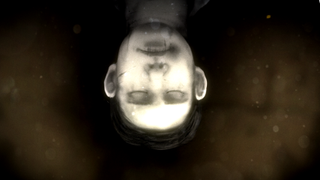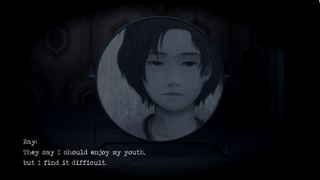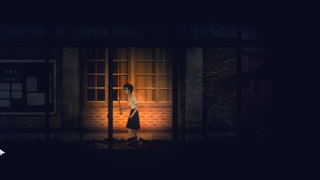Detention is a beautiful, creepy Taiwanese horror adventure
Explore an abandoned school haunted by strange spirits.

A boy falls asleep in class, waking up to find his school mysteriously abandoned. The corridors and classrooms are lifeless and silent except for the sound of the rain pounding outside, and he begins to head home. On the way he runs into a girl who’s just as puzzled as he is about what happened to everyone. They try to return home together, but the only bridge out of the school has collapsed. And so they have no choice but to head back and spend the night.
Detention is a wonderfully atmospheric point-and-click adventure set in 1960s Taiwan. The pacing and scene-setting in this first twenty minutes are fantastic, easing you into its eerie, understated brand of horror. The hand-drawn visuals and muted colour palette give the game a distinctive aesthetic, reminiscent of Junji Ito books and the Silent Hill series. In fact, it’s the closest a game has come to capturing the essence of the original Silent Hill games in years.
Shortly after the boy and girl decide to work together, things get strange. The steady pace remains, but the subdued opening scenes are replaced by a gnawing, unsettling horror. You explore the school to look for answers, encountering strange ghosts that you must hold your breath to safely walk past. Discovering the dark secrets hidden in the school for yourself is an in important part of the game, so I won’t go into any more detail. But it’s all creepy as hell.
The music, which takes obvious inspiration from Silent Hill composer Akira Yamaoka, only adds to the unease. It shifts from ghostly ambience to grinding, unnerving industrial noise, and the odd chittering and laughing of the ghosts is brilliantly spooky. Despite being limited to a 2D plane, the school is a richly detailed, convincing space, and I held my breath every time I opened a door for the first time, wondering what horrors lay behind it.


I like the old school flavour the game has, with puzzles straight out of the PlayStation era of the survival horror genre. They wouldn’t feel out of place in an early Resident Evil. And I love that one of them had me reaching for a notepad, which is something that doesn’t happen much these days. Of the two hours I’ve played so far, most of my time was spent exploring the school, finding keys and clues to unlock more areas, all while creeping past ghosts.
The puzzles are nicely designed, but they aren’t spectacularly clever. And the point-and-click interface is fairly standard stuff. But the most important things in Detention are its atmosphere, story, and rumbling sense of dread. The art direction, atmosphere, and audio design are all very well done, with a quality English localisation that clearly explains some of its East Asian references. It has a polish you don’t often see in adventures developed by small teams.
Games rarely touch on Buddhism and Taiwanese culture, which makes it even more interesting. One of the reasons producer Coffee Yao decided to make the game was to represent the country he grew up in. Taiwan was under martial law in the 1960s, and it’s a period of history that few, if any, games ever explore. I have no idea where this strange story is leading, but I’m eager to find out more about this school and its ghostly inhabitants.


The biggest gaming news, reviews and hardware deals
Keep up to date with the most important stories and the best deals, as picked by the PC Gamer team.
If it’s set in space, Andy will probably write about it. He loves sci-fi, adventure games, taking screenshots, Twin Peaks, weird sims, Alien: Isolation, and anything with a good story.
Most Popular


